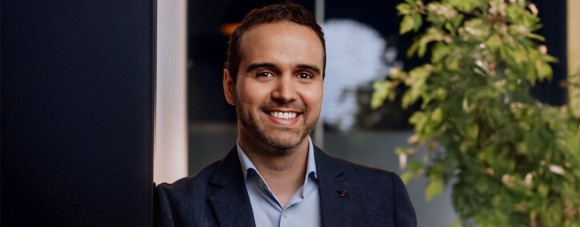Opinião
Portugal tem de voltar a estar na dianteira

Em 1500, Portugal superou as expetativas. Não era a maior, mais rica ou mais populosa nação da Europa – na verdade, era uma nação empobrecida, marginalizada e minúscula de apenas 1 milhão de almas, em grande parte ignorada pelo resto da Europa.
Mas chegou a ser a mais ousada de todas as nações e, através de uma navegação ousada, pensamento estratégico e um apetite implacável pela descoberta, Portugal construiu o primeiro império comercial verdadeiramente global.
Mapeou rotas marítimas para a África, Ásia e América do Sul, abriu novos mercados e rompeu o status quo de seu tempo. Em suma, foi precoce – e o mundo tomou conhecimento. E a ousadia, e não a cautela, definirá o próximo salto de liderança económica, cultural e global que Portugal deverá dar.
Tendo acabado de regressar de uma viagem muito movimentada de três semanas ao Alentejo, onde se encontram as minhas principais ligações empresariais e culturais, fiquei satisfeito com o trabalho que realizei, mas quase espantado com o quanto mais há para realizar, pode ser realizado e, mais importante, deve ser realizado.
Há um corpo crescente de visionários que estão a prestar atenção ao resto deste incrível país para além dos grandes centros urbanos e turísticos e que percebem que o resto do potencial de Portugal permanece em grande parte latente.
E para ser muito preciso, acredito que a maior oportunidade para este potencial não é de forma alguma mudar ou alterar a natureza única de Portugal e dos portugueses, mas sim simplesmente desvendar e revelar o seu encanto, singularidade e cultura existentes e abundantes e que tem em grandes quantidades. Mas o ecossistema necessário para conseguir desbloquear este potencial é surpreendentemente semelhante ao de 1500, quando os portugueses políticos, económicos, comerciais e comuns se uniram num objetivo comum de explorar, pois deixados aos poderes das nações do Norte, Portugal continuaria a ser largamente ignorado e, em última análise, marginalizado.
Na economia do século 21, a estar na dianteira não é sobre galeões e especiarias – é sobre talento, inovação, capital e relevância global. Os fundamentos económicos de Portugal são fortes e melhoraram significativamente, mas o crescimento incremental já não é suficiente. O mundo recompensa a ousadia. E tem-se defendido vezes sem conta que Portugal sabe ser arrojado se for conduzido com coragem e convicção e não com chavões e panaceias.
Encorajo o meu amado Portugal a tentar surpreender o mundo novamente – tornando-se uma rampa de lançamento para ideias transformadoras, um íman para fundadores ambiciosos e um modelo de sustentabilidade, inovação e, talvez o mais importante, um desenvolvimento económico disperso. Há sinais claros deste novo espírito que se pode encontrar em Lisboa e no Porto, muito mais do que quando entrei pela primeira vez em Portugal como professor de empreendedorismo e investidor privado, há quase 20 anos. Mas há sinais angustiantes de que a letargia começa a cair novamente sobre Portugal, com o seu setor bancário e jurídico praticamente inalterado, simplificado e modernizado. Os líderes políticos limitam-se a mudar de posição de função em função, em vez de novos e mais jovens agentes de mudança a quem é dada a oportunidade de liderar; e as iniciativas nacionais e regionais anunciadas com grande alarde são arruinadas pela lama de uma burocracia lenta que parece privilegiar a publicidade em detrimento da autêntica mudança e inovação. Estes são apenas alguns exemplos e há mais. Já passou da hora de mudar da segurança para a ousadia, pois o mundo está a andar mais depressa do que Portugal. A porta continua aberta, mas por quanto tempo?
Os empresários, os investidores e os decisores políticos a todos os níveis, incluindo os locais, devem agora perguntar-se: estamos a pensar suficientemente grande? Ou estamos simplesmente a regurgitar o que foi feito antes? Qual é a nossa proposta de valor única e que pode ser devidamente desenvolvida sem destruir a nossa própria cultura e comunidade? As respostas estão aí se formos suficientemente ousados para fazer as perguntas e aceitar as respostas que podem não ser as que sempre tiveram prioridade.
Ser precoce, estar na dianteira, como nação significa que Portugal precisa de demonstrar liderança internacional através da ousadia, inovação e surpresa. Isto não significa que deva destruir o que há de tão maravilhoso e surpreendentemente refrescante em Portugal.
Os empreendedores da Era dos Descobrimentos não eram diferentes dos fundadores de start-ups de hoje: enfrentavam incertezas, arriscavam tudo e navegavam além do mundo conhecido. Em alguns contextos, as caravelas portuguesas podem ser tão marcantes como as plataformas digitais, os avanços biotecnológicos e os empreendimentos de deep tech, mas noutros podem ser no desenvolvimento imobiliário inteligente, no ecoturismo, no agronegócio, na requalificação de dezenas de milhares de edifícios em desintegração e em pequenos negócios de todos os tipos e setores. Mas a coragem necessária para fazer isso é a mesma onde quer que esteja.
Portugal não precisa de imitar Silicon Valley, Munique ou Shenzhen. Pode liderar à sua maneira – com uma sofisticação política, cultural e regional que está ao seu alcance, forjada ao longo de séculos de uma rica e inexplicável história de inovação. A questão não é saber se Portugal pode liderar. A história já respondeu a isso. A questão é se ele está disposto a ser precoce novamente – agir mais cedo, ir mais longe e acreditar maior do que seu tamanho pode sugerir. Esse é o Portugal que o mundo irá conhecer, respeitar e, até de alguma forma metafórica, voltar a temer.
Versão em inglês
Portugal must be precocious again
In the 1500s, Portugal punched far above its weight. It wasn’t the largest, wealthiest, or most populous nation in Europe — in fact, it was an impoverished and marginalized and tiny nation of barely 1 million souls, largely ignored by the rest of Europe. But it came to be the boldest of all nations, and through daring navigation, strategic thinking, and a relentless appetite for discovery, Portugal built the first truly global trading empire. It charted sea routes to Africa, Asia, and South America, opened new markets, and disrupted the status quo of its time. In short, it was precocious — and the world took notice. And boldness, not caution, will define Portugal’s next economic, cultural, and global leadership leap that it should make.
Having just returned from a very busy three week trip to the Alentejo where my primary business and cultural connections lie, I was pleased with the work I accomplished but almost staggered by how much more there is to accomplish, can be accomplished, and most importantly, should be accomplished. There is a growing body of visionaries that are paying attention to the rest of this amazing country beyond the large urban and tourism centers that realize that the rest of Portugal’s potential remains largely latent. And to be very precise, I believe that the greatest opportunity for this potential is in no way changing or altering the unique nature of Portugal and the Portuguese, but rather in simply unlocking and revealing its existing and abundant charm, uniqueness, and culture that it has in vast amounts. But the ecosystem required to succeed in unlocking this potential is strikingly similar to that of the 1500’s, when the political, economic, commercial and ordinary Portuguese united in a common goal to explore, for left to the powers of the northern nations, Portugal would continue to be largely ignored and ultimately marginalized.
In the 21st-century economy, precociousness is not about galleons and spices — it’s about talent, innovation, capital, and global relevance. Portugal’s economic fundamentals are strong and have improved significantly, but incremental growth is no longer enough. The world rewards boldness. And the case has been made time and again that Portugal knows how to be bold if it is led with courage and conviction and not with platitudes and panaceas.
I encourage my beloved Portugal to aim to surprise the world again — by becoming a launchpad for transformative ideas, a magnet for ambitious founders, and a model for sustainable, innovative, and perhaps most importantly, dispersed economic development. There are clear signs of this new spirit one can find in Lisbon and Porto, far more so than when I first engaged Portugal as a Professor of Entrepreneurship and private investor nearly 20 years ago. But there are distressing signs that lethargy is beginning to fall upon Portugal once again, with its banking and legal sector largely unchanged, streamlined, and modernized; political leaders simply moving positions from role to role rather than new and younger change agents given the opportunity to lead; and national and regional initiatives announced with great fanfare becoming ruined by the sludge of a slow bureaucracy that seems to prize publicity over authentic change and innovation. These are just a few examples and there are more. It is well past time to move from safety to boldness, for the world is moving faster than Portugal is. The door remains open but for how much longer?
Entrepreneurs, investors, and policy-makers at all levels including the local ones must now ask themselves: Are we thinking big enough? Or are we simply regurgitating what has been done before? What is our unique value proposition that we hold and can be properly developed without destroying our own localized culture and community? The answers are there if we are bold enough to ask the questions and accept the answers that may not be the ones that have always taken priority.
Being precocious as a nation means that Portugal needs to demonstrate international leadership through daring, innovation, and surprise. This does not mean that it must destroy what is so wonderful and startlingly refreshing about Portugal.
The entrepreneurs of the Age of Discovery were not unlike today’s startup founders: they faced uncertainty, risked everything, and sailed beyond the known world. In some contexts, the Portuguese caravels can be as striking as digital platforms, biotech breakthroughs, and deep tech ventures , but in others it could be in smart real estate development, ecotourism, agribusiness, redeveloping the tens of thousands of disintegrating buildings, and small businesses of all sorts and types and sectors. But the courage required to do this is the same wherever located.
Portugal doesn’t need to mimic Silicon Valley, Munich, or Shenzhen. It can lead in its own way — with a political, cultural, and regional sophistication that lies within its grasp forged through centuries of a rich and unexplained history of innovation. The question is not whether Portugal can lead. History already answered that. The question is whether it’s willing to be precocious again — to act sooner, go further, and believe bigger than its size might suggest. That’s the Portugal the world will take notice of, respect, and even in some metaphorical ways, fear once again.








